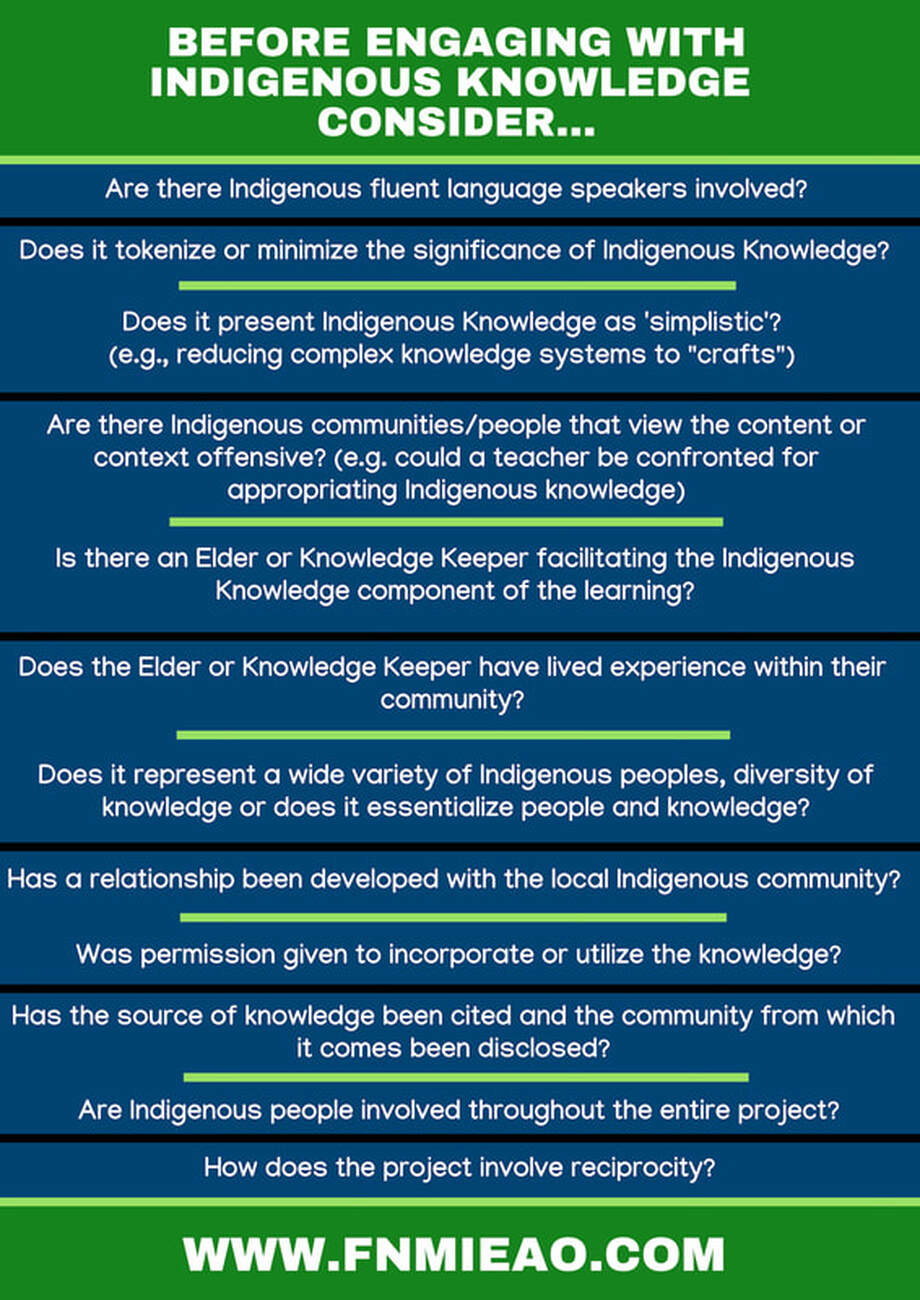BEFORE STARTING
A Note About Indigenous Knowledge
It is important to understand that Indigenous Knowledge is a way of knowing that comes from the natural environment.
“Indigenous Knowledge is derived from the understanding of the natural cycles of the earth and how all life is interconnected in a delicate balance. Learning this knowledge comes from being apart of the environment. Nature creates a set of beliefs and values that governs our way of life. Indigenous Knowledge is not separate from the people who learn it, they are the knowledge, they are the land, and the land is ceremony. Everything is connected. By delivering this resource to students they will be able to have a glimpse at the old stories of the Indigenous peoples from this land in order to further understand the connection to the great spirit of this land, Mother Earth. The more we explore these traditional beliefs in our education system, the deeper our understanding and connection to the natural world will be.”
Isaac Murdoch - Serpent River First Nation
A Note About Colonialism
Colonialism has, and continues to have a devastating impact on Indigenous Peoples. From the dispossession of lands to the violence stemming from Indian Residential Schools, as well as numerous social and political impacts (e.g., the 60s scoop and now the millennial scoop, MMIWG2S, the Indian Act, etc.), Canada has been engaged in genocide.
(To access resources on the dispossession of land click HERE)
Part of Canada's "assimilation policies" have included cognitive imperialism. This process has devalued Indigenous Knowledge to only been seen as "myths and legends" or only recognized as "crafts", while creating a normative discourse that "western science" or "western knowledge systems" are superior and the right way.
Our job in education today is to critically engage in a process of "decolonization" while also engaging in critical reflection into our own unconscious bias. As educators we must recognize that we have all, Indigenous and non-Indigenous, been impacted negatively through colonialism. In order to create positive changes in education, we need to look for opportunities to highlight and elevate Indigenous Knowledge systems. We need to recognize how Indigenous Peoples come from sophisticated societies with knowledge systems that are equal to subjects such as mathematics, physics, and science.
We hope that this resource will help revitalize classrooms with the beauty of Indigenous Knowledge and how it can also benefit all students while engaging them in a variety of subjects such as Geography, History, Arts, Science and more!
It is important to understand that Indigenous Knowledge is a way of knowing that comes from the natural environment.
“Indigenous Knowledge is derived from the understanding of the natural cycles of the earth and how all life is interconnected in a delicate balance. Learning this knowledge comes from being apart of the environment. Nature creates a set of beliefs and values that governs our way of life. Indigenous Knowledge is not separate from the people who learn it, they are the knowledge, they are the land, and the land is ceremony. Everything is connected. By delivering this resource to students they will be able to have a glimpse at the old stories of the Indigenous peoples from this land in order to further understand the connection to the great spirit of this land, Mother Earth. The more we explore these traditional beliefs in our education system, the deeper our understanding and connection to the natural world will be.”
Isaac Murdoch - Serpent River First Nation
A Note About Colonialism
Colonialism has, and continues to have a devastating impact on Indigenous Peoples. From the dispossession of lands to the violence stemming from Indian Residential Schools, as well as numerous social and political impacts (e.g., the 60s scoop and now the millennial scoop, MMIWG2S, the Indian Act, etc.), Canada has been engaged in genocide.
(To access resources on the dispossession of land click HERE)
Part of Canada's "assimilation policies" have included cognitive imperialism. This process has devalued Indigenous Knowledge to only been seen as "myths and legends" or only recognized as "crafts", while creating a normative discourse that "western science" or "western knowledge systems" are superior and the right way.
Our job in education today is to critically engage in a process of "decolonization" while also engaging in critical reflection into our own unconscious bias. As educators we must recognize that we have all, Indigenous and non-Indigenous, been impacted negatively through colonialism. In order to create positive changes in education, we need to look for opportunities to highlight and elevate Indigenous Knowledge systems. We need to recognize how Indigenous Peoples come from sophisticated societies with knowledge systems that are equal to subjects such as mathematics, physics, and science.
We hope that this resource will help revitalize classrooms with the beauty of Indigenous Knowledge and how it can also benefit all students while engaging them in a variety of subjects such as Geography, History, Arts, Science and more!

